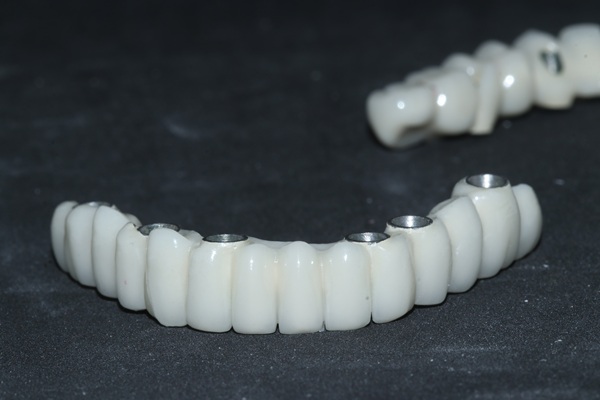FAQs About Dentures

Learning more about dentures and how they work to support your overall good oral health is necessary when you are missing multiple teeth. The many advancements in the dental industry allow for more denture choices than ever before. This is great news for anyone who is in need of dentures, as dentures are indeed necessary as they replace missing teeth.
A healthy mouth is one that has all 32 teeth If you are missing many of your teeth, then learning more about dentures is your first step to once again having a healthy mouth.
The benefits of getting dentures
Wondering what some of the benefits of getting dentures are besides replacing your missing teeth? Replacing your missing teeth is essential to having a healthy mouth. However, there are additional benefits that come with wearing dentures. These benefits include, but are not limited to, the ability to talk easier, chew easier, eat any foods and feel more confident in one’s smile.
FAQs about dentures
The following is a list of some of the more frequently asked questions people have about dentures these days.
Is it possible to get dentures after not having teeth for a long time?
When someone has been missing teeth for a long period of time, their jawbone will start to shrink. When the jawbone shrinks, it is more difficult for dentures to properly fit. Anyone who is in this particular situation needs to make an appointment with a dental professional for their guidance and direction.
How long does it take to get used to wearing dentures?
There is a learning curve when wearing new dentures, as the mouth is not used to having a dental appliance and therefore requires an adjustment period. It usually takes a new denture wearer anywhere between four and six weeks to get used to wearing their new dentures.
Is it easy to take care of dentures?
Yes. Cleaning dentures requires one to use a soft-bristled toothbrush and a non-abrasive toothpaste or special denture cleaner to gently brush the dentures, which needs to be done at least once a day. They also need to be soaked overnight as this helps them retain their shape.
How long will dentures last?
With proper care, dentures tend to last anywhere between five and 10 years. Over time, dentures will start to wear down and accordingly will need to be replaced. This is one of the reasons why it is so important for denture wearers to make regular dental appointments, as they need to be checked to ensure that they are working properly.
Are dentures in your near future?
Now that you understand more about how beneficial dentures are to your good oral health, are you planning on getting dentures soon? The sooner you do the sooner you can experience the many benefits that come with wearing dentures. Dentures not only allow you to function better, which includes easier eating and easier talking abilities, but dentures also give you back your smile.
Ready to perform your everyday activities with ease? Ready to smile with confidence? We are here for you!
Are you considering dentures in the Santa Rosa area? Get more information at https://www.kennethbauerdds.com.
Check out what others are saying about our services on Yelp: Read our Yelp reviews.
Recent Posts
Mouthwash, or mouth rinse, is commonly recommended by general dentists to add to an at-home oral hygiene routine. These rinses help eliminate harmful bacteria in the mouth that can cause decay, gum disease, and bad breath. However, some individuals have concerns that mouthwash can harm their oral and overall health.There are several types of mouthwash…
Implant-supported dentures are an excellent choice for patients who want a durable and easy option for replacing lost teeth. This restoration allows patients to enjoy their favorite meals once again and go about their regular activities with the denture securely in place. There is no need to worry about the dentures slipping or coming loose…
Receiving a teeth cleaning can be a great way to ensure teeth stay healthy and there are not any serious oral health concerns that develop with the teeth and the supporting structures. By having a full understanding of what each teeth cleaning type does and is used for, you can gain a better understanding of…
Getting a dental filling is a common procedure where a dentist restores the integrity of a decayed or damaged tooth. After placing a filling, you need to take the correct steps during recovery to ensure its durability and long-term effectiveness. Avoiding certain activities and habits promotes long-term oral health and prevents potential complications.One of the…


